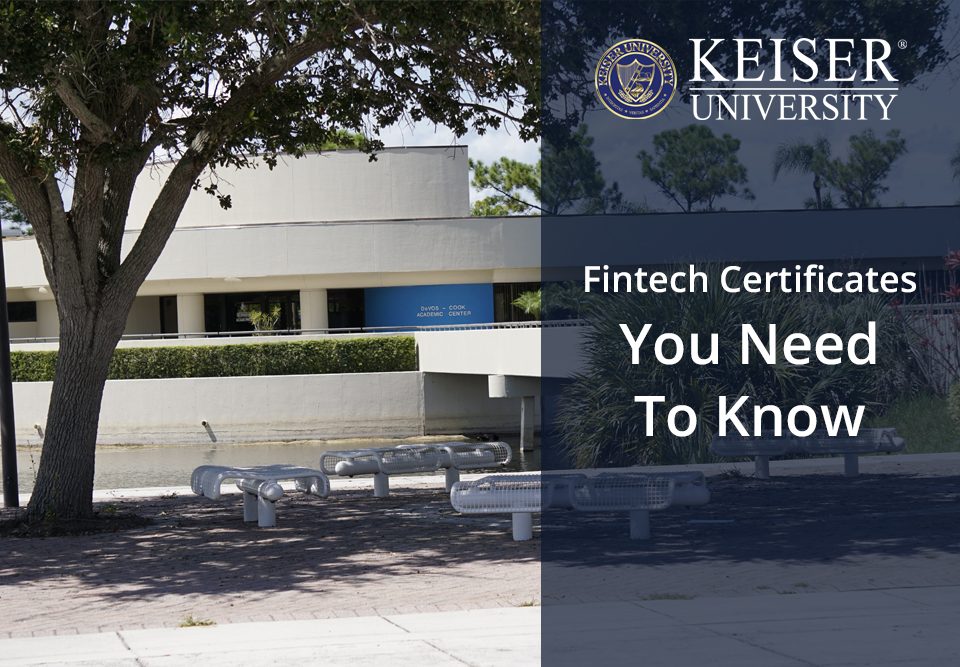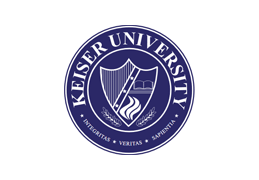The field of financial technology, usually shortened to fintech, is growing rapidly. As technology continues to progress, it will play a major role in the way payments are sent and received. Security, speed, processing power and reliability are all important. As a result, anyone who is looking for a growing, burgeoning field in which to start their career should consider fintech.
Even though these companies are hiring constantly, people need to do what they can to be competitive to earn a job in this field. One potential way to do so is to earn a fintech certificate or degree.
What Is a Fintech Certificate?
If you want employers to seriously consider your application, you need to demonstrate strong knowledge in the field. That is where a fintech certificate can be helpful. This program will provide you with a specific set of skills that you can use at the intersection of technology and finance. There are some classes that have a relatively narrow focus, providing you with a unique set of skills that may make it easier for you to compete for a job. For example, maybe you are interested in a boot camp on blockchain or other business models. There are also certificates that may provide you with a broad knowledge base that demonstrates you have a working understanding of the technology behind fintech.
Of course, there are plenty of certificates that exist somewhere in between those two extremes. You might feel like you have learned enough about this field on your own, but it is still essential to earn a certificate or degree to demonstrate to financial institutions that you are committed to the field and have the knowledge to get the job done.
What Makes a Good Fintech Certificate?
As you explore available fintech education options, how do you know which ones are right for your needs? Some of the factors you need to consider when you are evaluating the strength of a specific fintech certificate include:
1. The Strength of the Brand Name
Just like you might evaluate a traditional graduate program, it is important for you to think about the strength of the brand name. The entire reason you are completing a fintech certificate is that it should help you get a better job once you are done. Therefore, you should consider the strength of that brand name in your chosen field.
What do companies think about that specific certificate? Do they feel like the certificate provides you with skills that will make you valuable to the company? You need to make sure the certificate program will make it easier for you to get the job you want upon completion of the program.
2. The Quality of the Courses
In addition to increasing your appeal for potential employers, the certificate program should provide you with skills that you will actually use. Even though the theory of fintech might be interesting, you want to make sure that the skills it teaches are applicable to the job you want. So, how do you evaluate this factor?
You need to evaluate what other people have said about that specific certificate program. Do they feel like the program taught them various skills beneficial to their workplaces? If other people have had a good experience applying the skills they have learned, there is a good chance you will, too.
3. Time and Cost
If you want your career to progress, you need to invest your resources. This means that you will need to use a combination of time and money. Of course, you need to consider the cost of the program. Compare it to the cost of similar programs, and make sure you feel like you are getting a fair price to become a certified fintech professional.
Think about how long it will take to complete the program, so you can decide how much time you are willing to spend on a certificate program. For example, some certificate programs might only take a few months, while degree programs are more thorough and take longer.
When trying to calculate the value of your time & costs invested, don’t forget to account for the future growth of your expertise & career. Some certifications or graduate classes can transfer their value to future education, should you decide to pursue a degree in the future. These programs may need a bigger upfront investment, but they pay off down the line.
4. The Ability to Network
Be sure to consider the quality of the instruction as well. Do the teachers have a background in the fintech industry? You want to be taught by professionals with experience in the fintech world. That way, they can explain to you exactly how the topics are going to be applied in the industry. There is a chance you might even interact with teachers or alumni who have strong ties to the industry, creating relationships that could help get your foot in the door and compete for some of the best jobs out there.
CAFCA Certification
One popular fintech certificate is called CAFCA, which stands for Certified AML (Anti-Money Laundering) FinTech Compliance Associate. This certificate program demonstrates that you have a strong foundation you can use to identify and prevent financial crimes. It was developed by financial professionals at ACAM and covers important fintech compliance principles, risks and functions.
With this certificate, you will learn how to perform various tasks related to financial compliance, validate your knowledge with a recognizable certificate and put yourself in a position to advance your career.
What Skills Do Fintech Certificates Teach You?
Because there are so many certificate programs available, you need to consider which ones are right for your needs. Most certificates are going to focus on a specific area, including:
- Creating new fintech platforms
- Regulations pertaining to fintech
- Legal tools you can use to interact with government regulators
- Machine learning that makes it easier to build protocols that control machines and analyze data
- Security issues
- Initial coin offerings
You need to think about what you want to do as a part of your future career, and you should review certificates that can teach you the skills you need.
Is Fintech Certification Required?
Even though fintech certification can be beneficial, not all employers require it. There are plenty of other ways to learn the skills you need to become a successful professional in financial services and technology. For example, you could return to school to earn a graduate degree in fintech.
Earning a fintech certificate or degree can help you stand out from the crowd, augmenting your existing skillset. A recognizable certificate gives you a better chance of getting hired. You simply need to make sure the education you get is worth the time and money you invest.
Fintech Certificate Vs. Degree
If you are serious about getting a job in fintech, you need to demonstrate to a potential employer that you have invested the time and effort to learn the skills you need. That is why you should consider going back to school to earn a degree instead. A degree can offer more formal recognition, structure, and even room to grow. Some students have found that they start with the fastest certification they can find only to come back for additional certifications or a degree as their career progresses. It is important to take a closer look at some of the biggest differences between a fintech certificate and a fintech degree, including:
The Knowledge Learned
One of the most significant differences between a certificate program and a degree is that a certificate program typically focuses on a relatively narrow set of skills, while a degree program will provide you with a much broader and deeper knowledgebase. You simply learn more in a degree program, and employers will understand that. If you really want to learn everything you can about fintech, you should consider earning a degree.
Industry Recognition
A degree is generally held in higher esteem than a certificate. Even though there are some colleges and universities that offer certificate programs, degrees from colleges and universities will immediately jump off the page. Regardless of whether you are earning an associate, bachelor’s, or master’s degree, a degree program is simply going to make a greater impact on a potential employer.
The Time Commitment
Finally, you need to think about the time commitment. In general, any certificate program can take anywhere from a few weeks to a few months, while a degree program will take a few years. Degrees also come in many shapes and forms; while some are faster to complete than others, they will usually take longer than a certificate program to account for the additional knowledge, skills, and experience imparted.
Grow Your Fintech Expertise with a Fintech Graduate Degree
If you want to grow your expertise in financial technology, you should do so with a graduate degree. At Keiser University, we are proud to offer numerous degree programs, including a master’s degree in fintech. If you want to learn more about how our degree program can help enhance your career, request information about our fintech program today!






 The instructors at Keiser University impacted my life. They believed in my ability to become a great graphic designer, regardless of how I felt about my skills. KU helped to prepare me for the real world and got me to where I am today.
The instructors at Keiser University impacted my life. They believed in my ability to become a great graphic designer, regardless of how I felt about my skills. KU helped to prepare me for the real world and got me to where I am today.
